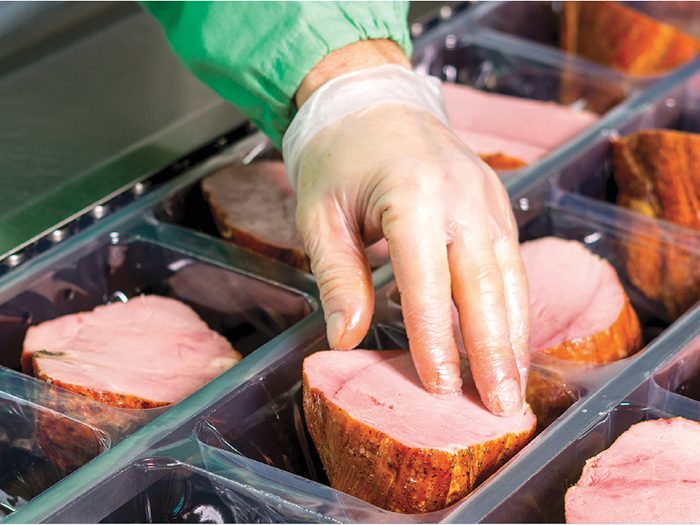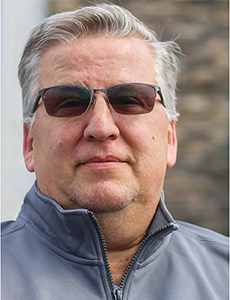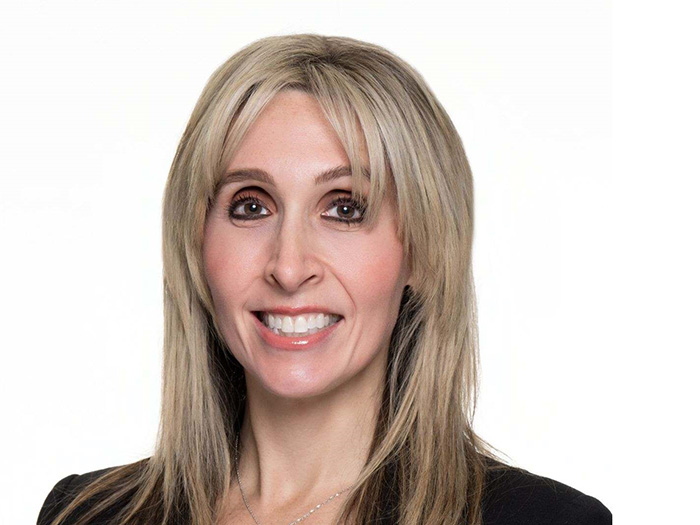Clemens Brings Home the Bacon — and a Teddy Award — by Focusing on Holistic Worker Health

When you ordered extra bacon on your cheeseburger, you probably didn’t give much thought into its journey from the farm to your plate.
Not many people do, though the average American consumes 222.2 pounds of meat per year.
Clemens Food Group, producer of trusted brands such as Hatfield Meats and Farm Promise, is painfully aware of the challenges that meat production poses for its workers.
Dubbed ‘industrial athletes’ by the company’s workers’ compensation manager John Madaus, Clemens employees come face-to-face with a plethora of injury risks every time they step on the plant floor:
- Pork is processed in extremely cold environments to preserve the integrity of the product.
- Surfaces are wet from constant sanitation, presenting risk for slips and falls.
- Work spaces are scattered with knives and other hazardous equipment.
- Production lines can result in repetitive motion-related illnesses, such as carpal tunnel.
Considering its vast and welcoming opportunity for injury, retaining talented and committed workers in meat production is hard. Coming up with a plan to keep them all safe on the job is even harder.
No one knows this better than John Madaus.
More Than Meets the Eye
When Madaus joined Clemens in 2016, the company seemed to be rolling out a more than viable workers’ compensation program; onsite care, a 24-hour wellness center, and athletic trainers accompanying employees on the floor.
On paper, things were different.
“It was evident when I got here that there were delays in service,” Madaus explained of the state of the workers’ compensation program when he arrived.
The overall lost-time cost was $2.1 million, and the average claim was worth $41,150. Cumulative trauma injuries were too common. Claims were aging and return-to-work programs were struggling.
According to Madaus, however, the real risk wasn’t about the money.
“Where we are, it’s the risk of the team member not getting better,” he said matter-of-factly.
But with all the proper workers’ compensation program incentives, the results were not mirroring the effort put forward.
“I saw that they had really done a lot to benefit the injured employees and prevent them from being injured, but they weren’t getting the results that they should be getting, given everything they’d been doing,” said Brian Chance, claims cost controller for ECBM, Clemens’ insurance broker.
“The normal systems are set up to handle claims well, but they’re not necessarily set up to do what’s best for the injured worker all the time.”
This considered, Chance and ECBM partnered with Madaus and Clemens back in March 2016, on the brink of what would become a complete workers’ compensation program paradigm shift. The success of the shift would eventually earn Clemens a 2019 Theodore Roosevelt Workers’ Compensation and Disability Management Award.
A Paradigm Shift
It was easy for Madaus and his team to see that the delays in service were not due to the volume of medical claims, but to the handling process.
“The company, before I got here, had already built a brand-new wellness center and were rolling out new programs. I just took that and shifted over to the occupational health side,” explained Madaus.
“Our partners were aligned with us and they aligned with each other so that we can all have that same vision.”
By focusing on occupational health, Clemens’ aimed to prevent injuries, as well as deliver efficient and attentive care when injuries did occur.
For Madaus, adopting this preventative yet proactive mindset was easy, given his background. He was previously employed by Clemens as an occupational health nurse from 2001-2005. Now, he could transform experience into strategy within his new role.
“Being a registered nurse and certified case manager, my immediate focus is on injury care delivery for our team members. With that being said, it’s about setting the vision and getting buy-in from your co-workers and vendor partners. I had the ability to get all of the vendors in the room and see the vision.”
Under Madaus’s direction, the Clemens team and their partners came up with a collective and simple concept after which to model their workers’ compensation goals: the team member comes first, no matter the cost.
“It’s one person at a time, one case at a time.”
As with any new project, the execution is not always the same as the initial vision, and modifications were made along the way.
“As with any change, there was a lot of doubt in the beginning. We had ideas, we had educated guesses, but the strategy itself was very unproven,” explained Leslie Wheeling, director of People Strategy at Clemens.
“It took a bit to find vendors that were progressive enough in their thinking to join us on this journey,” she said of the program’s transformative process.
“As we did, we found some great vendor partners. I am very impressed with Industrial Health Solutions, PMA, ECBM; they’re all different vendors that we’ve worked with. We really couldn’t have done it without them.”
It’s All About Teamwork
Once the partnerships and plan were established, the execution was underway, but required some reengineering.
Chance and ECBM enacted administrative adjustments that would lead to larger policy changes.
“We reengineered their entire claims handling platform,” explained Chance, giving Madaus the most freedom, flexibility and access to the injured worker as possible.
“We changed procedures and guidelines, and really gave John the ability to drive claims to resolutions as fast as he possibly could in whatever way, shape or form he thought was most beneficial to the injured employee.”
As litigation rates and administrative responsibilities fell away, Madaus had more time to meet with workers individually to discuss their injuries, plan for their recovery and make sure they had everything that Clemens could provide for them.
“Clemens’ approach is very well aligned with their unique industry and their risk exposures,” said Michael Sharkey, senior claims service manager, PMA Companies, Clemens’ third-party administrator.
“Not all companies would have significant enough workers’ compensation exposures to warrant the depth and breadth of Clemens’ program. Second, not every organization would have the senior leadership buy-in for such an extensive program.”
Programs that succeed at this level don’t happen in a vacuum. They’re driven by a genuine commitment to help people get better. John Madaus practices that commitment every day.
“John would get in his car and drive four hours roundtrip just to meet with one of the injured workers in one of the off-site facilities to make sure they were okay and they were getting what they needed,” said Chance of Madaus’s desire to provide as much support as possible to Clemens’ employees.
“Just talking to them on the phone wasn’t good enough. He wanted to see them and talk to them about what they needed and what their experiences were so he could make sure they were getting what they needed.”
Comparing Ourselves to Ourselves
If you ask Madaus, he will explain that his strategies operate on the values that Clemens Food Group was founded on in 1895: Ethics, integrity and stewardship.
“It’s so easy to focus on different facets of the system to try and make a difference. But the key for me is if you do the right thing from the beginning for your team member, things will always work out better for us.”
Mirroring this mantra, obvious results emerged for the Clemens’ team.
between 2016 and 2019, the company saw a 29% increase in its workforce, while simultaneously achieving:
- A reduction in average cost per-claim from $41,150 to $29,249
- Lost-time claims avoided to the tune of $2.1 million
- A 38% drop in total lost-time claims
- 68 percent medical cost containment savings, with $4.7 million saved off of billed charges of $6.8 million
“When you take out inflation, their loss rates dropped 60% in three years because of all of the work we’ve done together. It’s just a phenomenal turnaround,” praised Chance.
As for the future, an award does not suppress Clemens Food Group’s hunger to improve.
“The Teddy Award is such an honor, to recognize that we are on a good path, but it doesn’t change anything from our innate desire to continuously push forward,” said Wheeling.
“We are comparing ourselves to ourselves to get better. We want to keep going.” &











